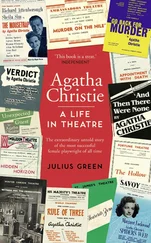Alice Green - Town Life in the Fifteenth Century, Volume 1
Здесь есть возможность читать онлайн «Alice Green - Town Life in the Fifteenth Century, Volume 1» — ознакомительный отрывок электронной книги совершенно бесплатно, а после прочтения отрывка купить полную версию. В некоторых случаях можно слушать аудио, скачать через торрент в формате fb2 и присутствует краткое содержание. Жанр: literature_19, foreign_antique, foreign_prose, Историческая проза, на английском языке. Описание произведения, (предисловие) а так же отзывы посетителей доступны на портале библиотеки ЛибКат.
- Название:Town Life in the Fifteenth Century, Volume 1
- Автор:
- Жанр:
- Год:неизвестен
- ISBN:нет данных
- Рейтинг книги:3 / 5. Голосов: 1
-
Избранное:Добавить в избранное
- Отзывы:
-
Ваша оценка:
- 60
- 1
- 2
- 3
- 4
- 5
Town Life in the Fifteenth Century, Volume 1: краткое содержание, описание и аннотация
Предлагаем к чтению аннотацию, описание, краткое содержание или предисловие (зависит от того, что написал сам автор книги «Town Life in the Fifteenth Century, Volume 1»). Если вы не нашли необходимую информацию о книге — напишите в комментариях, мы постараемся отыскать её.
Town Life in the Fifteenth Century, Volume 1 — читать онлайн ознакомительный отрывок
Ниже представлен текст книги, разбитый по страницам. Система сохранения места последней прочитанной страницы, позволяет с удобством читать онлайн бесплатно книгу «Town Life in the Fifteenth Century, Volume 1», без необходимости каждый раз заново искать на чём Вы остановились. Поставьте закладку, и сможете в любой момент перейти на страницу, на которой закончили чтение.
Интервал:
Закладка:
Against the century of growth and the century of decay which made up the record of the French communes, we have to set three hundred years of unbroken prosperity and privilege in which the English burghers added charter to charter and filled their “common chests” with a regularity that knew no check. It is not necessary, however, to assume that Englishmen reached that happy state wholly by virtue of their native superiority; it would perhaps be truer to thank the good fortune of insignificance that so long waited on them. England, in fact, was lagging far away in the rear, where there was little of the noise and dust of battle. It was not there that the idea of municipal liberty was first proclaimed; for in the Dark Ages of riot and disorder and piracy, Celts, Latins, Teutons, all the members of the European brotherhood in fact, found in association their natural succour against danger and aid to labour; and along the great trade routes that traversed Europe the more important societies of men confederated for protection and assistance were formed before ever Englishmen had begun to organize themselves into self-governing communities. In that European drama, everything took great continental proportions; men disputed for tremendous stakes, and in the long battle the mighty lords of the old world were never wholly routed, but still laid their grip on the modern society that was struggling to usher in a new order. In the great fight there were great defeats, such as we have seen in France, and liberty had to begin its course afresh and lead men along new roads in search of freedom and content. But we in our distant island had throughout the Middle Ages all the advantages of obscurity. According to any valid method of determining our place in the European order, whether by yearly income, or size of merchant fleets, or strength of armies, or number of inhabitants, we remained for a time after the loss of Normandy and Anjou unimportant in the eyes of Europe-of little account among the peoples; and as far as popular feeling went ourselves heedless of what went on on the Continent. 40 40 M. Jusserand in his Epopée Mystique du Moyen Age has well pointed out that the war with France was royal rather than national. Pp. 7-9, 117.
Tranquil and secure because no one took the trouble to think of us while we were regardless of their quarrels, we were left to learn our lessons as slowly as we would, to lay sure, if lowly, foundations, to practise our skill by safe experiments till our art was mastered. The humble display which we made in our national capacity was repeated in our municipal story. There indeed the tiny dominion of the community, the sparse population, the poor little treasure-box, the solitary “common barge,” the handful of militia passing in review with their clubs and forks, present a sorry figure beside the majestic state of the big corporations over sea. But this humble condition was their true security. Set from the first in pleasant places where by conquering kings the lofty had been brought low and the humble lifted up, and where no enemy of invincible strength lay any longer across their path, the burghers might carry on their own business without care. Within the narrow area enclosed by the city wall and ditch, amid a scanty population scarcely bigger than that of a small country town to-day, experiments which would have been impossible on a great scale were tried with every conceivable variety of circumstance and expedient; and the boroughs owed to their early insignificance and isolation a freedom from restraint and dictation in which real political experience became possible.
Thus in England, as elsewhere, the character of the nation and the mould of its political thought were ultimately shaped by outward circumstance; and the forms of our freedom have been profoundly affected by the way which the towns took to liberty, by the manner in which they modified its expression according to the peculiar conditions to which each community was subject, and by the use they made of their power. But since the very existence of the towns as important centres of life, as well as the character of their development, depends on the complete transformation which English society underwent in the later Middle Ages, I venture, before beginning my real story, to give a very brief and rapid sketch of the Industrial and Commercial Revolution in which mediæval England was buried and modern England born.
CHAPTER II
The history of the fifteenth century has long remained but little known. It is very generally regarded as the “profoundly tragic close of a great epoch,” and the historian looks back to the golden age of the thirteenth century as the glorious time of English and of European history – the culminating period to which all the foregoing generations slowly mounted, and from whose heights the later sons of men as slowly and surely declined and went backward. The period of this backsliding is seen as an age altogether wanting in picturesqueness and moral elevation, sunk in materialism, sordid and vulgar, a time of confused and indiscriminate corruption, where “heart and treasure” were linked in ignoble union, and the political demoralization of the people was only matched by their private degradation; and the fifteenth century has long borne the heavy burden of its evil reputation, while its records have been left comparatively undisturbed by inquisitive search. 41 41 Stubbs, Lectures on Mediæval History, p. 342; Friedman, Anne Boleyn, i. pp. 1-4; Gneist, La Constitution Communale, trans. by Hippert, i. p. 334, &c. “England at the accession of Henry the Seventh was far behind the England of the thirteenth century.” (Denton, Lectures on the Fifteenth Century, 120, 118.) “This low and material view of domestic life had led to an equally low and material view of political life, and the cruelty which stained the Wars of the Roses was but the outcome of a state of society in which no man cared much for anything except his own greatness and enjoyment. The ideal which shaped itself in the minds of the men of the middle class was a king acting as a kind of chief constable, who, by keeping great men in order, would allow their inferiors to make money in peace.” (Gardiner’s Student’s History, 330-1.) “The despondency of the English people, when their dream of conquest in France was dissipated, was attended with a complete decay of thought, with civil war, and with a standing still or perhaps a decline of population, and to a less degree of wealth.” (National Life and Character, by Charles Pearson, p. 130-1.) “There are few more pitiful episodes in history. Thirty-five years of a war that was as unjust as it was unfortunate had both soured and demoralised the nation.” “England had entirely ceased to count as a naval power.” As for the burgesses, “if not actively mischievous they were sordidly inert.” (Oman’s Warwick, 4-11, 67, 133.)
For hackneyed as the period of the Wars of the Roses may seem to the superficial reader, no student has yet adequately studied the secret of the age in which the great revolutions of the next century were being prepared – the age which made possible for England the revival of letters and the reformation, which founded her commercial greatness, which revolutionized her industrial system, which cast away the last bonds of feudalism and laid the foundations of the modern State.
It is indeed true that no great man has made this century illustrious. No general or warrior of the first rank distinguished wars which were born in iniquity, and kept alive by greed. No gifted statesman left his mark on the government or administration of the country. Among the people themselves interest in national affairs seemed dead; they made revolutions and set up new kings as they were bidden to do, and kept stores of badges of the houses of York and Lancaster alike, to be ready with either sign of loyalty as the fortunes of war turned this way or that; 42 42 In Ricart’s Calendar in Bristol he enters duly the fact that a battle had been fought and that one side or other was victorious without further comment. He misplaces the date of the murder of Suffolk three years, though he might well have remembered it; and he writes as a sort of after-thought in the margin of his record, “and this year the two sons of King Edward were put to silence in the Tower of London.” (Ricart, 40-46.) In 1460 Norwich had its captain and 120 soldiers with King Henry in the north, and all the rest of its available forces had to hurry off to Edward at his accession. (Blomefield iii. 162-163.) The city raised £160 for the coming of Richard the Third to the city, and £140 for the coming of Henry the Seventh. (Ibid. 173-174.) For Nottingham, see vol. ii. There is no mention of Bosworth in Canterbury, and Henry the Seventh was received with the same pomp as former kings. (Hist. MSS. Com. ix. 145.) For Bosworth, where men stood afar off waiting to join the victorious side, see Fabyan, 672-673. The policy of the burghers was the same in this respect as that of the great Churchmen, who were entirely passive in the real crises of the civil war, and so ready to serve every king, that not one of them suffered loss from fidelity to any side. (Rogers’ Agricul. and Prices, iv. 9, 10.) The people in general were equally indifferent. “I have read thousands of documents penned during the heat of the strife, and have found only one allusion to the character of the times in the earlier, and one about the later war of 1470-1.” (Ibid., 19.) An interesting parallel to the indifference of the trading communities of the fifteenth century during the Wars of the Roses may be seen in the action of the Merchants’ Company in the civil wars of the seventeenth century. (Lambert’s Gild Life, 177-178.)
they forgot the stirring political ballads of former generations and sang moral ditties instead. In place of the mighty theologians of an earlier time there came commentators and interpreters of little significance. Nor did a single religious leader or reformer or scholar arise to stir the popular thought or conscience: Lollardy with its questionings and criticisms was still heard of from time to time in the bigger towns and manufacturing districts, but the people generally acquiesced in the demands of the authorized religion and discipline. Literature was well nigh lost as well as the graver kinds of learning. In the beginning of the century one or two nobles had collected libraries and brought tidings of the Renascence in Italy, and later on half a dozen scholars made their way to the Italian universities; but there was neither poet nor scholar to follow the masters of an earlier age. In the fifteenth century the very language in which Chaucer wrote was but half intelligible to the mass of the people, and his tales must have been unknown out of court circles. Men were content with rhymes innumerable – on morals, on manners, on heraldry, on the art of dining, on the rules of thrift and prosperity; and in all our history there is no time so barren in literature as the reign of Henry the Sixth.
Интервал:
Закладка:
Похожие книги на «Town Life in the Fifteenth Century, Volume 1»
Представляем Вашему вниманию похожие книги на «Town Life in the Fifteenth Century, Volume 1» списком для выбора. Мы отобрали схожую по названию и смыслу литературу в надежде предоставить читателям больше вариантов отыскать новые, интересные, ещё непрочитанные произведения.
Обсуждение, отзывы о книге «Town Life in the Fifteenth Century, Volume 1» и просто собственные мнения читателей. Оставьте ваши комментарии, напишите, что Вы думаете о произведении, его смысле или главных героях. Укажите что конкретно понравилось, а что нет, и почему Вы так считаете.












